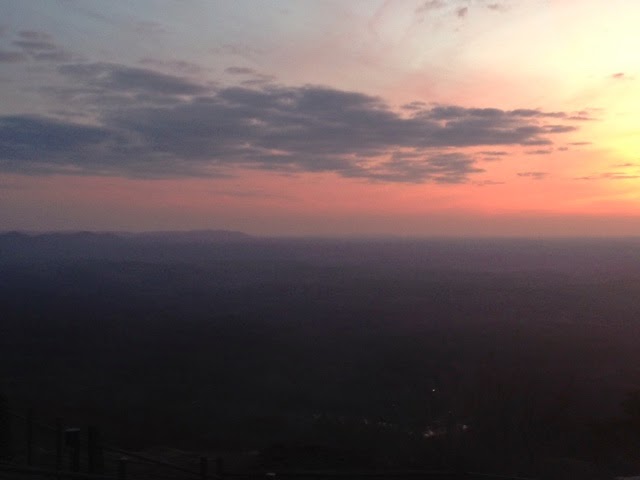
Night Fell
By Florence Ripley Mastin
Night fell one year ago, like this.
He had been writing steadily.
Among these dusky walls of books,
How bright he looked, intense as flame!
Suddenly he paused,
The firelight in his hair,
And said, “The time has come to go.”
I took his hand;
We watched the logs burn out;
The apple boughs fingered the window;
Down the cool, spring night
A slim, white moon leaned to the hill.
To-night the trees are budded white,
And the same pale moon slips through the dusk.
O little buds, tap-tapping on the pane,
O white moon,
I wonder if he sleeps in woods
Where there are leaves?
Or if he lies in some black trench,
His hands, his kind hands, kindling flame that kills?
Or if, or if …
He is here now, to bid me last good-night?
When Florence Josephine Mastin was in her 20s and already a published poet, she decided to replace her girlish middle name with “Ripley.” “Ripley” sounds jaunty and masculine, and Mastin was proud of her Ripley ancestors, including George Ripley, a Transcendentalist who founded the utopian community of Brook Farm in West Roxbury, Mass. For the rest of her life, her friends called her Ripley.
Florence Ripley Mastin chose her own name, and she spent her entire life trying to hoist that name out into the world. Between roughly 1900 and 1967, the year before she died at age 81, she published probably hundreds of poems in newspapers and magazines, including more than 90 in the New York Times alone. She authored several books of poetry, and her work appeared approximately a dozen times in Poetry between 1918 and 1935.
Mastin’s timing was lucky and unlucky. She was brash and butch and she loved women—one woman especially—but she died one year before the Stonewall riots. She was not a great poet, but she was lucky enough to be writing in a time where poetry was published in almost every daily newspaper, and commissioned for just about every public ceremony. Poetry, during her lifetime, was a viable, exciting, and culturally relevant pursuit; Mastin relished its sheen of elitism, but the truth is that she benefited from its mass appeal. She was able to publish prolifically as a high school teacher with modest talent and without many connections to the literary scene.
Grace Beatrice MacColl, Mastin’s partner of some 50 years, was a fellow teacher at Erasmus Hall High School in the Flatbush neighborhood of Brooklyn. Mastin met MacColl, who was born in Vermont, when they were students at Barnard College. When they graduated, they both took the exam to become New York City high school teachers, and applied to teach at Erasmus “because of its illustrious past, its beautiful campus, and its famous staff of teachers,” Mastin later wrote.
Mastin and MacColl’s partnership was as public as the era allowed: They presented themselves as “close friends and devoted companions,” to use a phrase from feminist historian Judith Schwarz. Family members and friends sent “love to Grace” in their letters, and the pair traveled together, marched in suffrage parades, and lived together. When an Erasmus student working on a profile of Mastin for the school newspaper wrote her a letter in 1961 mentioning her “devoted friendship” with MacColl, Mastin wrote back paragraphs on the “gifted beautiful girl” who “was a constant inspiration for my poetry: She had a keen, a brilliant mind, a broad understanding and a subtle and delightful wit. She was more of a realist than I, and was an excellent balance wheel for my romanticism. A more noble, true and devoted friend never lived.”
Mastin wrote on subjects from the suffrage movement to both world wars to Sputnik to Vietnam. Since the above poem was published in 1918, I tend to think that it is about a young man going to war. If it was written early in 1918, it would have been roughly a year since men began being sent to war. In the poem “At the Movies,” two stanzas on watching a newsreel of British soldiers, was anthologized in a 1919 Treasury of War Poetry and is one of her only works to be reproduced frequently online.
Occasionally she was funny, even cruel. In one undated handwritten poem, she savaged “certain modern poets”:
The ebullitions of modern poets make me sick.
I am an ordinary person, thank God,
With an ordinary brain and ordinary emotions;
And I come in tired to a warm fire and a drink,
And I open this book of verse . . . . . . . .
I may as well be a surgeon hereafter
And open gall bladders and tracts of bile and
holes with pus in them.
Why should I continue to read your verse
Spread everywhere like damp fungus?
… Dirty highways caked with manure will be
clean to me after you.
As her confusion and anger at highbrow moderns suggests, Mastin was an old-fashioned lyric poet with little interest in being on the literary cutting edge. And though she was publishing constantly, there is no evidence that she was in regular conversation with serious poets of her day, even those she admired. For Robert Frost’s 75th birthday in 1949, Mastin published a poem about him in the New York Times, then printed the poem on a huge scroll and had her students at Erasmus sign it. When Frost gave a talk at the New School soon afterward, a delegation of three students presented him with the scroll. She was only a dozen years younger than Frost, but this is the work of a fan, not a peer.
Grace MacColl died in 1960 and was buried in the Mastin family plot on a hilltop overlooking the Tappan Zee. Afterward, Mastin couldn’t maintain her home Four Gables on her own, and she moved into an apartment north of Piermont, where she had a porch, a garden, and a view of her beloved Hudson River. “I think I never shall feel old—and maybe it is because I have lived with poetry all my life—and poetry is timeless,” she wrote around that time. “It is built of music and dreams so it never grows old.” She died in 1968.
Florence Ripley Mastin loved to see her name—the name she had chosen for herself—in print. She kept detailed records tracking which newspapers reprinted which poems and who nominated her for which awards. Today, a few boxes of those papers can be found in the archives of Syracuse University’s Bird Library: dispatches from a life in poetry when such a thing must have seemed like anyone’s for the taking.
It is possible today to see Mastin as an unlikable woman; an unrelenting self-promoter, she sent clippings and copies of her work to friends, acquaintances, and politicians, including President Eisenhower. She was forever bragging about her Mayflower ancestry and her distant familial connection to Ralph Waldo Emerson. But she was a confident striver, that great American archetype, and her identity as a poet gave shape and weight to an otherwise ordinary life. She called herself a poet, and then she made herself one. And her story illustrates an important but easily overlooked chapter in the story of poetry in the 20th century.

























